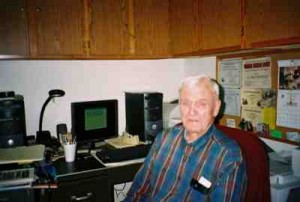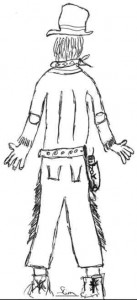Essay by Janelle Holden
Rural Life – September 2005 – Colorado Central Magazine –
IN THE RURAL WEST, July and August are months of heat broken up by haying, a wedding or anniversary celebration and the county fair. It’s the time when 4-H projects ripen and months of work culminate in a coveted ribbon.I was raised on a northern Montana cattle ranch and participated in 4-H despite my mother’s objections.
When my father first suggested signing me up, my mother argued that 4-H was “too political.” She also didn’t want to spend summers helping me prepare for the county fair – something she’d done with my older sister. But my father promised to take sole responsibility for my 4-H education.
Since my mother didn’t care if I took the “high point” prize at the fair, I drifted along, trying out photography and cooking projects, and finally pleasing my father, who urged me to make some money by raising pigs and then selling them at the fair. We made a deal: If he purchased piglets and their feed, I’d use the money I made at the 4-H auction to buy my school clothes that fall.
For several months before the fair, I dutifully fed and watered my pigs, ironically dubbed Wilbur I and Wilbur II from E.B. White’s Charlotte’s Web, and trained them to “show” by directing them down a long alleyway with a cane to a concrete paddock where they enjoyed a 15-minute shower and scrub. This daily treatment ultimately led to my winning a coveted title, Reserve Jr. Grand Champion Pig Showman. I was 12 and very proud.
I didn’t bawl when my pigs were loaded into the stock trailer and hauled off to the slaughterhouse, but I saw kids who did. I was reminded of them when I spotted a picture of a boy with a steer in a tire shop in Dillon, Mont., last year. A handwritten note posted next to the picture read, ” Dear Tire Shop, thank you for buying my steer at the 4-H auction. He was a good steer. I could sleep with him. I still miss him. I hope he is good eating.”
I remembered writing similar notes to my buyers, and it finally dawned on me why my mother thought 4-H was “too political.” Like many competitive activities for children, 4-H is often more about winning than learning, and with a significant amount of money involved, the stakes can be high.
The price of a steer, lamb or a pig at the 4-H auction often reflects more about a family’s status in the community, than it does the value of the animal. At 4-H auctions without fixed prices, you might see two blue ribbon animals sold for vastly different prices, depending on which family does business with the local tractor dealership. One might argue that local businesses routinely pay two to four times the market value for these animals as a sort of charity, to help rural kids build their college funds, but this also places more emphasis on the prize than on the experience.
Although there is no denying the value in a child learning how to care for an animal, I think the real mission of 4-H is teaching children the rewards of living an agricultural life, though I admit, the lesson didn’t entirely take for me. Despite the money I made on my pigs, I didn’t think twice about leaving the ranch. Many of my peers felt the same way as we left to get an education and then become professionals with steady paychecks. I’m lucky because I’ve been able to come back to the land in a way, since I work with ranchers to protect wildlife.
BUT I WORRY about the future, considering that the average age of farmers and ranchers is on the rise. If we don’t inspire the younger generation to work the land, we’ll lose to second-home condos the open space, healthy watersheds and wildlife habitat that ranches can provide.
Despite its drawbacks, 4-H is still the best institution to help children fall in love with the land and learn good stewardship practices. That is why I hope 4-H clubs will begin to emphasize more than the perfect trimming of hair on a steer’s ears, and create projects that celebrate locally grown meat raised on carefully grazed grass.
Teaching kids the links between the land, livestock and human health won’t convince every child to come back to the ranch, but it’s a goal worthy of 4-H.
Janelle Holden is a contributor to Writers on the Range, a service of High Country News hcn.org. She is conservation director for Predator Conservation Alliance in Bozeman, Montana.


